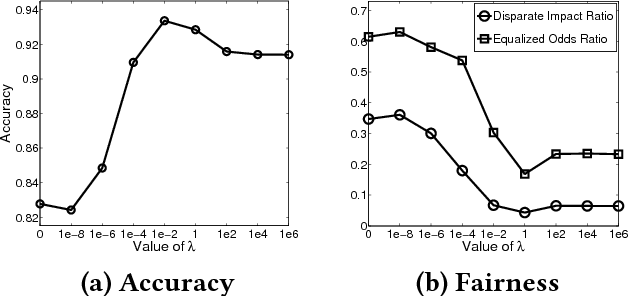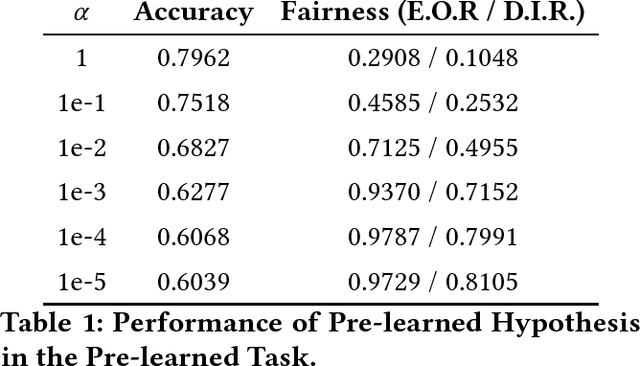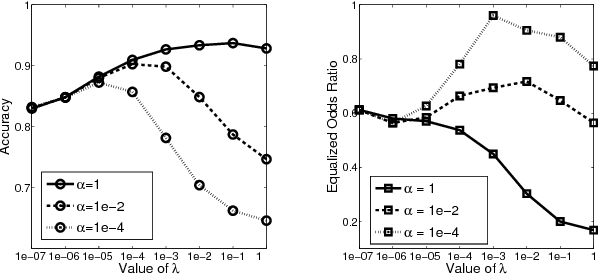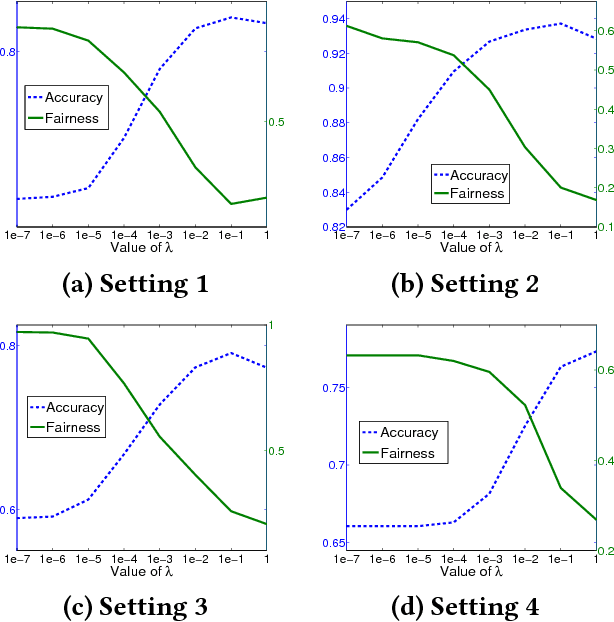Discriminatory Transfer
Paper and Code
Aug 07, 2017



We observe standard transfer learning can improve prediction accuracies of target tasks at the cost of lowering their prediction fairness -- a phenomenon we named discriminatory transfer. We examine prediction fairness of a standard hypothesis transfer algorithm and a standard multi-task learning algorithm, and show they both suffer discriminatory transfer on the real-world Communities and Crime data set. The presented case study introduces an interaction between fairness and transfer learning, as an extension of existing fairness studies that focus on single task learning.
* Presented as a poster at the 2017 Workshop on Fairness,
Accountability, and Transparency in Machine Learning (FAT/ML 2017)
 Add to Chrome
Add to Chrome Add to Firefox
Add to Firefox Add to Edge
Add to Edge